Product Watch: Pratham and Verve
A look at inspection system and large-format printer
14 Feb 2015 | By PrintWeek India
Pratham’s Supersort: Inspection system for pharma cartons
On the first day of PrintPack, Pune-based Pratham Technologies (Hall 1/Stall A-24) launched Supersort, an inspection system especially designed for the inspection of printed cartons for the pharmaceutical industry. PrintWeek India spoke to Datta Deshpande, owner, Pratham.
PrintWeek India: What is the product?
Datta Deshpande: Supersort is a 100% carton inspection and sorting system for folding cartons. We have developed this machine in collaboration with Vision Experts, wherein the software and illumination system is made in Germany while feeder, inspections conveyor, ejector and other transport systems are manufactured by Pratham in Pune.
PWI: Who is it aimed at?
DD: It is aimed at print firms who supply printed carton to pharma industry. The quality of printing for printed carton is a vital issue for these companies.
Errors in printing drug information can lead to recall of the entire consignment from the market. Print companies in India deploy manual sorting in order to inspect each and every carton. As it is a manual process, plus the quantities are in millions, mistakes tend to happen. Also, for exporting a pharma consignment, all the pharmaceutical companies need to comply with their manufacturing processes with 21CFR standard. This has compelled pharma printers to deploy automatic sorting systems. Hence, we have diversified into inspection machines.
PWI: How has been the market response?
DD: We have already booked our first system, which is being will be installed at Kalapi Printers in Vasai.
PWI: How about productivity and profitability?
DD: Manual sorting is the major bottleneck of the entire throughput of the printed carton supply. If we consider the rates, on an average sorting costs close to Rs 15 per thousand pieces.
For smaller cartons, the speed of the sorter is 50,000 cartons per hour. So, per hour, this system saves Rs 750 for smaller cartons. Per shift it becomes Rs 6,000 and per month it is Rs 1,56,000. For one machine and one shift of eight hours, the payback period for smaller cartons is five years.
With two shifts, it comes to half the time.
PWI: How does it operate?
DD: Supersort is equipped with two cameras which inspect from top and bottom. The top camera inspects for colour deviation, surface scratches, spots, hikkys, mottles, text deviations, etc, while the bottom camera is a monochrome camera which inspects dots, spots, insects etc. Our diverter is designed specially to work at a faster speed than its counterparts and it enables to run cartons with lesser gap between each carton.
PWI: How fast is it?
DD: Technically speaking, speed of the machine is 200m/min. It works out to be 50,000 cartons per hour for smaller cartons and 20,000 cartons per hour for larger cartons.
PWI: What kind of investment does it require?
DD: The lowest version is a single camera system which costs around Rs 70 lakhs, two camera (one at top and second at bottom) costs Rs 85 lakhs and three camera system (two at top and one at bottom) costs Rs 95 lakhs. The second camera at the top is to inspect UV coating or varnishing.
Verve: a wide-format printers for a range of applications
A large part of notion that wide-format business is a different line has been attributed to the users, who deal with the shorter format products (A4). That perception has changed or is changing, with the brand managers have now started to think both big and small on the same footing with it comes to buying.
A plethora of trade-shows, show a range of wide-format printing devices which have gone beyond the traditional vinyl range. They can now print on textile, paperboard, glass, wood, ceramics etc.
PrintWeek India spoke to Sultan Singh, marketing manager for UV solution at Apsom Infotex (Hall 7/D-2), to find out about Verve, one of their latest offering.
PrintWeek India: What is the product and when was it launched?
Sultan Singh: Verve – the flatbed UV printer which was launched in 2014.
PWI: When was it launched and what market is it aimed at?
SS: The True flatbed best serves the signage industry. Additionally, screen printers use it for short runs and prototyping. Some architects / interior designers like to print on glass to create custom ambience by using designed wooden doors, ceramic tiles, partitions etc.
PWI: What is the USP of the equipment?
SS: Verve is an advanced flatbed UV printer capable of printing on any rigid surface.
It ensures better print registration for higher quality prints. Verve is designed with a comparatively small footprint and needs a smaller installation and operation area. The White ink option enables printing on clear and dark surface materials: opens up tremendous applications and business opportunities.
PWI: Productivity and profitability?
SS: The versatility of the machine to print on different substrates; on high quality and exact registration opens avenues for various screen printers and interior designers.
Innovative applications like glass door printing , ceiling tiles, floor tiles allows the Interior design community to deliver to their clients exactly the ambience that they are seeking.
The Verve with a throughput of about 20m/hour, is more than adequate for most requirements. The cost to revenue ratio is extremely high.
PWI: Special features?
SS: Perfect registration and better print quality and white options, to print on clear and dar surface.
PWI: One feature that puts it ahead of the competitors?
SS: The versatility of the machine to print with CMYK and white enables the Verve to print on clear & dark surface materials . Its Photo realistic prints and blazing printing speed also put it ahead of the competition.
PWI: What is the speed of the machine?
SS: The low-cost machine print at a speed of up to 20 sqm/hr.


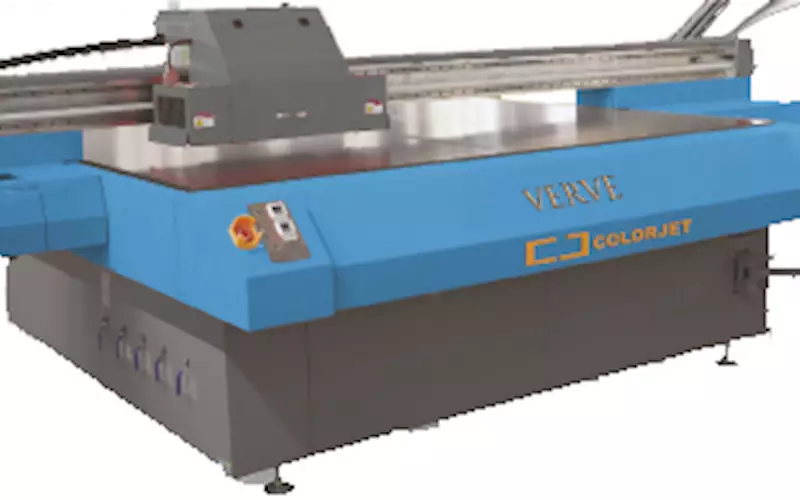
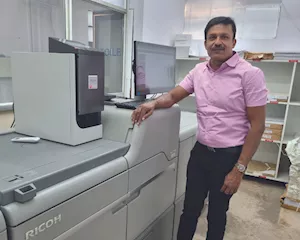
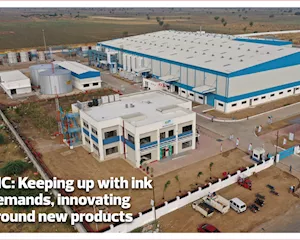
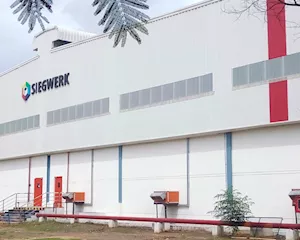
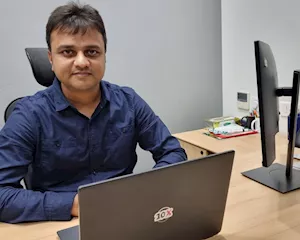
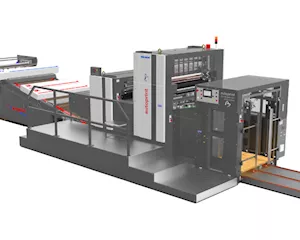






 See All
See All